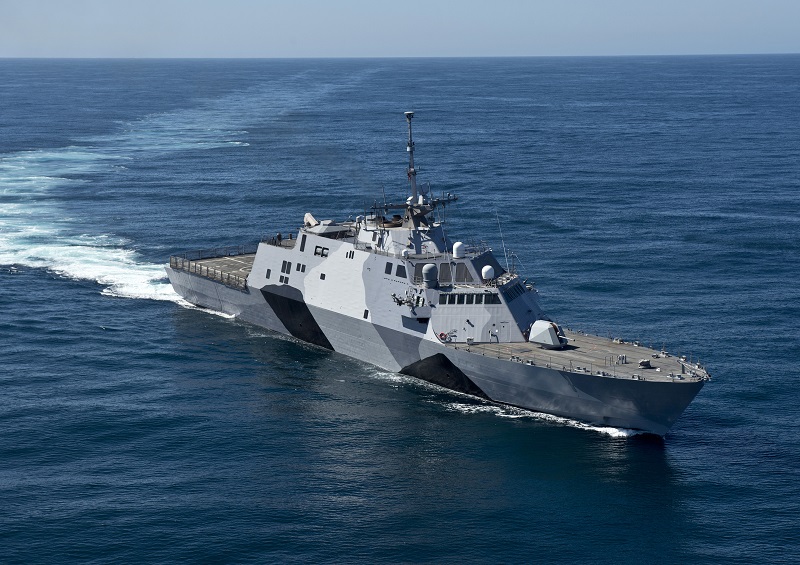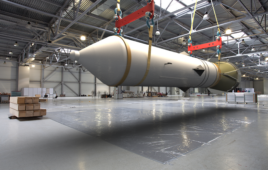
The USS Freedom during sea trials in 2013. The ship is the first of the Freedom variant of the Navy’s Littoral Combat Ships, or LCS. (Image: U.S. Navy/Mass Communication Specialist 1st Class James R. Evans)
Lockheed Martin and Austal USA are each being awarded $564 million contract options to construct Littoral Combat Ships (LCS) for the U.S. Navy, the U.S. Department of Defense said in its Thursday digest of military contracts.
Lockheed Martin will build LCS 25, a Freedom-class variant of the LCS. The option exercised to build the ship is in addition to the 2010 10-vessel block buy contract that the company struck with the U.S. military, making it the eleventh LCS built by the company and the thirteenth Freedom-class variant ship made overall. Austal will build LCS 26, which is an Independence-class variant of the LCS. Like with Lockheed Martin, the option awarded to Austal is in addition to a 10-vessel block buy contract awarded in 2010, making LCS 26 the eleventh ship Austal builds as a prime contractor under the contract. Austal was also the subcontractor for the construction of LCS 2 and 4.
Lockheed Martin said in a press statement that the industry team that it leads is in full-rate production of the Freedom-class, having delivered three of the ships already. Another seven ships are being constructed right now at Fincantieri Marinette Marine in Marinette, Wis., and three more are in long-lead production. The company added that the cost per ship has been reduced to half the cost of the first ships of the class and that two ships are being made per year on average.
Austal announced in its own press statement that seven Independence-class LCS are currently being built at the company’s facility in Mobile, Ala. Three of the Independence-class LCS Austal has worked on have been delivered to the Navy.
Andrew Bellamy, CEO of Austal, said in the company’s statement that it is “working hard to increase production efficiencies and reduce costs as the program matures.”
In addition to producing the two ships, the two contracts task the companies with providing basic seaframe construction, systems integration and testing, and equipment.
Both companies will conduct all of their work at locations throughout the U.S., and both are slated to finish the labor by July 2020.
The cost attributed to the contracts is due to a $564 million congressional cost gap, the DoD’s announcement said. The funding will assigned at the time of the award.
Filed Under: Aerospace + defense




